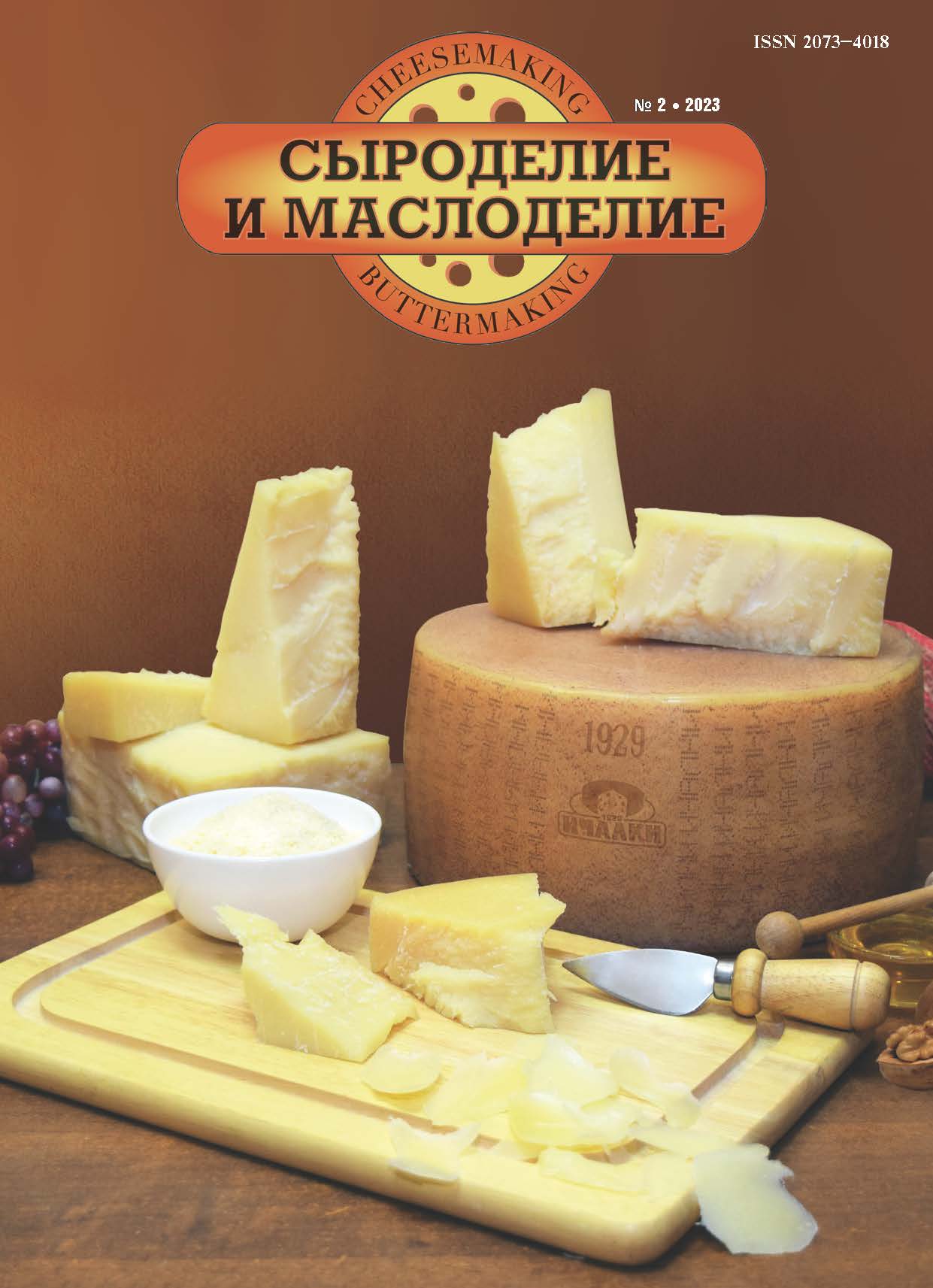Stavropol, Stavropol, Russian Federation
Stavropol, Russian Federation
Stavropol, Russian Federation
Stavropol, Russian Federation
One of the main by-products of lactose production, which is implemented at the Dairy Plant Stavropol’sky, is sedimentary molasses. Sedimentary molasses is a concentrate of milk salts characterized by a high content of phosphorus and calcium. The biogenic origin of the resulting concentrate makes it possible to position it as a food mineral additive. The purpose of this research is to study the possibility of fermented sedimentary molasses application for soft cheese manufacturing. Based on the analysis of the economic and technological features of the production of various cheeses of this group, the technology of cheese «Valence», a representative of classic French cheeses with white mold, was chosen as a prototype. The objects of the study were: cow's milk, cheese whey, an analogue of cheese «Valence». As a result of the assessment of sanitary and microbiological indicators of soft cheeses quality, it was found that all the experimental samples comply with safety indicators according to the standards of TR CU 033/2013 «On the safety of milk and dairy products». It was found that the introduction of fermented sedimentary molasses in the production of soft cheeses accelerates the formation of a casein clot, slightly changing its rheological properties, but does not negatively affect the final product. It is recommended to replace calcium chloride in the formulation of Valence cheese and other types of soft cheeses with fermented sedimentary molasses as a functional food additive. The production technology of Valence cheese has been improved at the stage of preparing milk for coagulation.
sedimentary molasses, fermentation, milk salt concentrate, rennet coagulation, soft cheeses
1. Hramcov, A.G. Effektivnost' primeneniya melassy molochnogo sahara v kormoproizvodstve / A.G.Hramcov [i dr.] // Sovremennaya nauka i innovacii. 2020. № 2. S. 132-139.
2. Dinyakov, V.A. Issledovanie mineral'nogo sostava fermentirovannoy melassy molochnogo sahara / V.A.Dinyakov [i dr.] // Sovremennye dostizheniya biotehnologii. Global'nye vyzovy i aktual'nye problemy pererabotki i ispol'zovaniya vtorichnyh syr'evyh resursov agropromyshlennogo kompleksa Rossii. Materialy VIII Mezhdunarodnoy nauchno-prakticheskoy konferencii 21-24 iyunya 2021 g. S. 98-103.
3. Bonjour, J.P. Calcium-enriched foods and bone mass growth in prepubertal girls: A randomized, double-blind, placebo-controlled trial / J.P.Bonjour [et al.] // J. Clin. Invest. American Society for Clinical Investigation, 1997. Vol. 99, № 6. P. 1287-1294.
4. Milk Mineral Concentrate Market // Transparency Market Research URL: https://www.transparencymarketresearch.com/milk-mineral-concentrate-market.html (data obrascheniya: 11.10.2019).
5. Ostroumov, L.A. Osobennosti i perspektivy proizvodstva myagkih syrov / L.A.Ostroumov, I.A.Smirnova, L.M.Zaharova // Tehnika i tehnologiya pischevyh proizvodstv. 2015. № 4 (39). S. 80-86.
6. Nikolaev, A.M. Tehnologiya myagkih syrov / A.M.Nikolaev. - M.: Pischevaya promyshlennost', 1980. - 210 s.
7. Veziryan, V.A. Izuchenie processa sychuzhnogo svertyvaniya moloka i razrabotka integral'nogo metoda kontrolya / V.A.Veziryan [i dr.] // Innovacionnye tehnologii pischevyh produktov i ocenka ih kachestva: nauka, obrazovanie, proizvodstvo. Materialy I Mezhdunarodnoy nauchno-tehnicheskoy konferencii (zaochnoy). FGBOU «Vostochno-Sibirskiy gosudarstvennyy universitet tehnologiy i upravleniya»: Izdatel'stvo VSGUTU, 2016. - S. 40-43.







